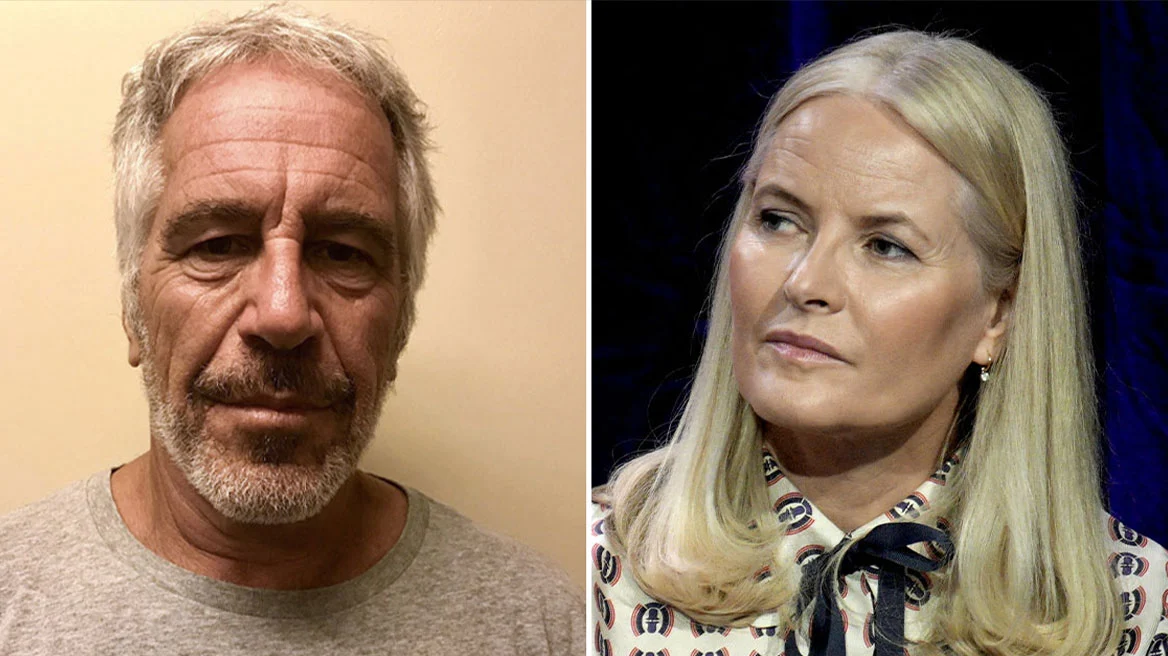In the past, singles in Greece would have faced not only pressure from those around them to follow the traditional paths of life, but would have experienced a huge social stigma for this different choice. However, today, the phrases “you’ll stay on the shelf,” “you’ll be a nun or a monk,” or “when are you going to get married and have kids?” no longer have the same potential.

Why do we stay single?
Are we fugitives? Don’t we want to do the “work” required to maintain a romantic relationship? Are we tired of the constant, wrong choices or are we just making friends with our loneliness?
Everyone today is spending more time in finding a partner who adopts the characteristics that everyone desires. Fear of divorce and the financial and emotional burden it can bring is another deterrent. With divorce rates on the rise, many individuals prefer to focus on their independence and personal growth.
Social networking platforms such as Tinder, Bumble and Hinge create a paradox where an abundance of options can lead to decision fatigue and commitment aversion. Moreover, they perpetuate unrealistic expectations for relationships. The pressure to display a perfect acquaintance on the Internet can prevent individuals from pursuing relationships that, while meaningful, do not fit the digital fairy tale they expect.
The new family: plants and pets
“Modern relationships have evolved beyond conventional marriage models,” argues Despina Drivakou, a psychologist, EFT couple therapist, and family therapist. “The partner life often offers the opportunity for full autonomy. The individual can make decisions based on their own needs and preferences, without having to compromise with a partner or family obligations. At the same time, engaging in interesting hobbies, education, and cultivating new skills help to boost self-esteem, while the lack of commitment that comes with romantic relationships can allow for more flexible management of time and resources. Also, many single people have strong social networks – friends, family, and communities – that can compensate for the lack of a stable romantic attachment.”
This is how pets become our new “children” and plants become our new pets. A 2022 American Pet Products Association report found that 76% of Millennials and 70% of Gen Z consider their pets to be family members. Similarly, the rise of the “plant parent” culture signals a trend where flowers are becoming objects of care.
The epidemic of loneliness
Today loneliness is reaching epidemic levels and has been described as a public health crisis. The World Health Organization, on the other hand, has linked it to a higher risk of depression, anxiety, heart disease, and even premature death.
Although technology has made it easier to connect with others, many singles still experience a deep sense of isolation. However, solutions have emerged to address this phenomenon:
Cohabitation spaces: spaces that provide an alternative to loneliness where individuals work or interact.
Internet platforms for socializing: apps like Meetup and platforms like Eatwith allow individuals to book group dinners with strangers, creating opportunities for connection.
Digital Nomad Communities: the rise of remote working has spawned a new lifestyle where singles travel the world while working online, finding community through co-working spaces and digital nomad meetups.
Healing and self-help groups: many singles are turning to therapy, mindfulness practices, and self-help communities to manage their emotional well-being.
Those who are having a good time on their own
Loneliness: an attitude to life or a phenomenon of our times? The “tribes” of singles talk to “THEMA”
Giorgos Laladakis /59 years old, taxi driver
“I do everything myself”
I got married at 20, divorced at 44, and have two grown children. When I got divorced, I became a bit of a guinea pig: I met women who had some complaints about life. I had one myself, of course. But I am a creative person and at some point, I decided to create for myself and not for them. My old guitar talent came out of me and I spent time on my father’s farm. I do everything myself. And I do the cleaning, and I like to cook. I only hire a man to do the ironing.
Aliki /83 years old, former accountant
“I have my girlfriends”
After my breakup I had thrown myself into work, had three kids behind and maybe I hadn’t found the right person to do something more meaningful. And so life passed. When you get older, you start thinking more qualitatively, you want someone to “get into your heart”. I live with my daughter and granddaughter and have girlfriends. I’m involved in the domestic side of things, but I also like the arts. When I was divorced, I made candles, now I’m into orange peel hats that I dry…
Anna /34 years old, freelancer
“I don’t want to be bossed around”
I have my job, I have my own house, I have my car- and it’s not that I’m not active, I’m just not looking for a relationship. If it fits OK, but I don’t feel like I need it either. I don’t want the commitment, I don’t want to be bossed around. You see and all the stuff going on with #metoo and femicide. It’s also that we’ve grown up with dads who were a little bit “you’re going to do what I say” and all of that kind of comes out afterward and you’re like “Now I’m going to live my life the way I want, I’m not going to have anyone over my head.” Even if I wanted to have a child with someone, I’d rather that someone had their apartment.
Natassa K. /45 years old, private employee
“The best thing is freedom”
It is difficult for a woman with a small child to meet a man suitable for a relationship. Many see the child as a burden. Who can tolerate having you in an “intermittent” relationship? But you also don’t have time to get to know a man. You don’t have the stamina. You run around all day because you’re a worker a mother and a housewife. You don’t even have someone to take out the trash. So the first thing you neglect is yourself. The worst thing is the stress of being entirely responsible for the child if something happens. The best thing, though, is freedom. You have no one in your head telling you how to do something or how to raise your child.
Dmitris /25 years old, photography student
“Relationships take a lot of energy”
I live alone in my mother’s house and have been working since I was 16 to cover my needs. It’s my choice to be single because I love flirting and I don’t want to do it with guilt. Constant communication to maintain relationships is a difficult part that weighs me down and takes a lot of energy.
Marina /40 years old, freelancer
“I don’t find anyone worthwhile”
I would like to be in a relationship, but judging by the choices I have, I’d rather be single. Although I know quite a few people, in the 40+ segment at least most are emotionally unavailable or don’t know what they want. There is a lot of ghosting, relationships that start and end before they start, and people who stay in messages but never make the move to get together. Many people are coming out of relationships or divorces and aren’t ready for anything serious, but at the same time, they chase you and won’t leave you alone. As for dating apps, I’m not discussing it, I ripped them up months ago. So yeah, I kinda end up choosing it, since I don’t find anything worthwhile.
The Greece of loneliness
According to the latest census, of the 1.4 million single-person households, 807,016 are women and 594,427 are men.
Among young people up to 24 years old, 38,897 men and 43,951 women are single.
In the 25-49 age group, men outnumber women (251,221 vs. 171,244).
In the 50-74 age group, women outnumber men (300,007 vs. 224,441).
In the age group over 75 only 79,868 men and 291,814 women appear. It is a given that women are living longer, but also that men are avoiding growing old alone.
At the same time, ELSTAT data shows that the institution of marriage is in crisis – in 2009 a total of 59,212 marriages were performed, while in 2020 31,475 were performed.
Also, in 2009 divorces were 13,607 and in 2020 they reached 19,190.
“We see divorce after 10-20 years of married life usually. And because the average age at which Greeks get married has risen to 35, divorcees average 50 years old. What we observe is that divorces have increased a lot as a result of women’s emancipation and even more so after the COVID lockdown period, when domestic violence increased,” says Anna Zournatzi, a member of the board of the Athens Bar Association with special training in the new institution of family mediation.
We raise singles from a cradle
How human relationships were replaced by illusions
In the 1990s, the British anthropologist Robin Dunbar argued that we can’t get to know more than 150 people in our lifetime. Thirty years later, digital technologies have challenged the “magic number” with a bang and made it possible to connect with hundreds of people in a short space of time, “but as illusions, not as relationships of substance – we don’t connect with people, we skim through them, we pass from one relationship to another without reaping the fruits of their labor,” he explains. Panagiotis Kordoutis, Professor of Psychology of Interpersonal Relationships at the Department of Psychology of Panteion University.
Some lost count and withdrew. Frustrated or sated, desperate or nirvana, they donned the ribbon of singleness and walked the road paved by social media and dating apps – or did they, simply, follow a fate they had predetermined for themselves? “We have changed. First, there was the culture of singles, serving the ultimate individual pursuits, and then social media came along to respond to this change by satisfying our new desires.”
Thanks to technology, the culture of singles has traveled everywhere, “reaching every corner of Greece, covering all ages and responding to the needs of all people, even from communities where individualism is not supported. In this respect, the Internet is proving to be a liberating thing in the matter of interpersonal relationships,” he says.
The path to becoming a member of a single tribe begins in childhood. “We proceeded through long-term cultivation of individuality, which, philosophically and emotionally, ignores the need for other people to be around. We reinforce individual careers very early on as cultures, as when we cultivate in a child the need to improve his or her abilities, to set goals, to strive for them, without at the same time cultivating the deeply human need to do so in a social context, through relationships from which you take and give.”
Relationships à la carte or nothing
Tomorrow’s singles are growing up in intense “individualism”, where the individual becomes the all-powerful reference point: “He wants to satisfy his desires and rights, which is legitimate, of course, but without taking into account the social context in which he finds himself, the consequences of his choices for others. In other words, people today want the satisfaction of their particularity – personal projects, dreams, aspirations – at all costs, without entering into the process of negotiation, of portraying themselves to a set of significant others. The dating platforms allow us to create our profiles and declare what we are looking for in each other.
However, there is one key difference: we don’t spend time and energy. At the first difficulty, at the first doubt, the application allows us to “turn the page” and move on to the next acquaintance. But relationships don’t work like that.
They require negotiation, interaction, and often compromise, not in the negative sense of retreat, I mean the need for understanding for both people to find common ground and meet each other’s needs as well as their own. This is why relationships are so beautiful and charming.
Today social media offers us the ability to seek them out, but this creates a new reality: relationships à la carte.”
Digital partners
Can’t find your ideal mate? Customize it with Artificial Intelligence
A divorcee in America finds solace in the arms of his virtual partner. A woman creates the man of her dreams with AI. In China, numerous women are asking ChatGPT to guide them in their romantic lives – and if it doesn’t find them the right man, to invent him.
With the Replika app, users create digital companions to their liking to exchange messages, and photos or even engage in sexting. The app has over 30 million users worldwide. People who are lonely and socially isolated are among the main users. They are followed by young people, familiar with the Internet, who find it difficult to interact in the real world. People who did not receive emotional support from their people when they needed it will also resort to the apps. Finally, anxious people who avoid relationships for fear of betrayal or abandonment will choose them, finding a sense of control and security there, while avoidant types will find a tool to avoid commitment by getting their needs met without having to invest emotionally or devote time and energy.
They acknowledge, however, that they remain singles and, as Panteion University Professor of Interpersonal Relationship Psychology in the Department of Psychology Mr Cordoutis argues, “they accept that they have surrendered to an illusion. At a certain point, many become addicted to this acceptance, the huge hug that keeps giving you without asking for anything. They can escape, but the more they get caught up in it, the more difficult it is. They keep telling themselves that one more day I’ll use a chatbot, the days go by, the time goes by… They stay because it serves them, it’s easy and cheap. Eventually, they reach a dead end, either from their social environment or from their own repeated interactions. Then, the physical dimension is missing, not only as sexual contact but the global feelings produced when we touch, when we embrace another human being, a very deep need that starts from infancy.”
Ask me anything
Explore related questions





